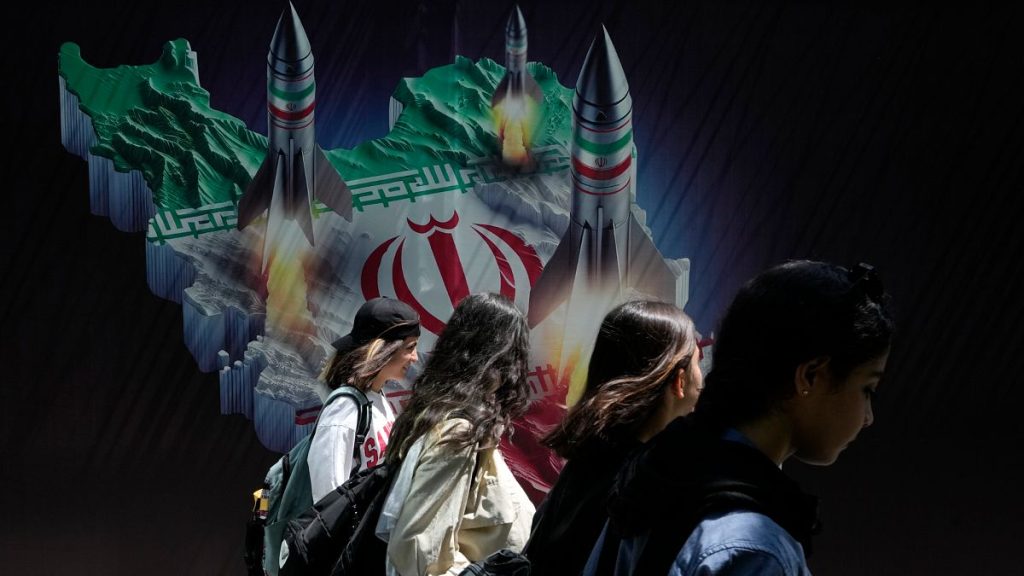Oman’s foreign minister recently announced that indirect talks between the United States and Iran surrounding Tehran’s nuclear program are set to take place in Rome on Friday. These discussions come after extended negotiations, although neither country has confirmed their participation. The situation remains tense as both nations grapple with key sticking points, particularly Iran’s uranium enrichment activities and the implications of American sanctions.
| Article Subheadings |
|---|
| 1) Background of the Ongoing Negotiations |
| 2) Current Position of Iran |
| 3) The U.S. Stance and Conditions |
| 4) The Role of Regional Players |
| 5) Implications of a Potential Agreement |
Background of the Ongoing Negotiations
The discussions surrounding Iran’s nuclear program have a long and complex history dating back over a decade. The initial framework that sought to limit Iran’s nuclear activities was formalized in the 2015 Joint Comprehensive Plan of Action (JCPOA). This agreement imposed restrictions on Iranian uranium enrichment levels, allowing them to enrich up to 3.67% and capping their stockpile at 300 kilograms, sufficient for nuclear power but far below the weapons-grade threshold of 90%.
However, after the United States withdrew from this accord in 2018 under the administration of President Donald Trump, Iran began to abandon the limits set forth in the agreement. This escalation propelled further tensions between the two nations, necessitating multiple rounds of negotiations aimed at revitalizing the JCPOA or creating an alternative arrangement. Most of these discussions have been held indirectly, as both sides have opted not to negotiate face-to-face to address the issues surrounding nuclear activity and sanctions.
Current Position of Iran
Iran’s foreign minister, Abbas Araghchi, has been vocal about the country’s unwavering stance on uranium enrichment, asserting that this will continue regardless of diplomatic negotiations. “I have said it before, and I repeat it again: uranium enrichment in Iran will continue — with or without an agreement,” he declared, signaling a firm red line for Tehran.
Iran’s supreme leader, Ayatollah Ali Khamenei, echoed this sentiment, expressing skepticism about the effectiveness of ongoing negotiations. Khamenei indicated that he did not expect fruitful outcomes from the talks, highlighting a general atmosphere of distrust and caution within Iranian leadership regarding U.S. intentions. This skepticism complicates the existing conflicts, as Iranian officials have also alluded to the possibility of pursuing nuclear weapons if the lack of sanctions relief continues.
The U.S. Stance and Conditions
The U.S. position remains firm, with officials, including President Trump and Secretary of State Marco Rubio, insisting that Iran must fully relinquish its enrichment capabilities to alleviate sanctions. American authorities have repeatedly emphasized that any sanctions relief will be contingent upon significant progress in negotiations, including proof that Iran is adhering to non-proliferation standards.
Reports indicate that the U.S. is also seeking assurances that Iran will not escalate its enrichment activities during negotiations. Each round of talks draws almost a tangible line between the desire for diplomatic resolution and the threats of military action against Iran’s nuclear infrastructure if discussions fail to yield an agreement.
The Role of Regional Players
The geopolitical landscape of the Middle East significantly influences the dynamics of the negotiations. Key regional players, particularly Israel, have a vested interest in the outcome. Israeli officials have openly warned of military strikes on Iran’s nuclear facilities if they perceive an imminent threat, creating an additional layer of urgency in the negotiations.
Moreover, the ongoing war in Gaza has introduced further complexities, heightening suspicions and tensions between Iran and Israel. The conflict serves as a reminder of the fragile nature of regional peace, as both nations grapple with their strategies and security concerns.
Implications of a Potential Agreement
If the ongoing talks lead to a breakthrough agreement, the immediate implications could be significant for both regional and global politics. Lifting sanctions could provide Iran with much-needed economic relief while simultaneously reducing the likelihood of military conflicts in the region.
Conversely, failure to achieve an agreement would likely exacerbate tensions, and U.S. military actions against Iranian sites could become likely. The outcome of these negotiations could dramatically affect not only U.S.-Iran relations but also the stability of the wider Middle East, influencing everything from energy markets to global diplomatic alliances.
| No. | Key Points |
|---|---|
| 1 | Indirect talks between the U.S. and Iran regarding nuclear issues are ongoing. |
| 2 | Iran remains firm on continuing its uranium enrichment activities. |
| 3 | The U.S. demands that Iran relinquish its enrichment capabilities for sanctions relief. |
| 4 | Regional nations, especially Israel, have expressed readiness to act militarily if necessary. |
| 5 | Failure to reach an agreement could escalate military tensions in the Middle East. |
Summary
As the fifth round of indirect talks between the U.S. and Iran approaches, the stakes remain extraordinarily high for both nations and the entire region. With Iran’s steadfast commitment to uranium enrichment and the U.S. insisting on a cessation of such activities as a precondition for sanctions relief, the potential for reaching a diplomatic resolution seems fraught with challenges. Key regional players like Israel add complexity to an already precarious balance, increasing the risk of military confrontation should negotiations falter. The outcome of these talks will significantly impact not only Iran-U.S. relations but also broader geopolitical stability.
Frequently Asked Questions
Question: What is the JCPOA?
The Joint Comprehensive Plan of Action (JCPOA) is a 2015 agreement designed to restrict Iran’s nuclear program in exchange for sanctions relief.
Question: What are the current uranium enrichment levels in Iran?
Currently, Iran is enriching uranium to levels up to 60%, which is a significant step closer to weapons-grade purity.
Question: Why is Israel concerned about Iran’s nuclear program?
Israel views Iran’s nuclear ambitions as a threat to its national security and has threatened military action if it believes its safety is at risk.



